Brian J. Taylor
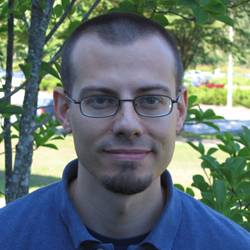
Contact Information:
Email: brian.james.taylor at gmail dot comPhone: 585.613.1248
Address: 9420 Frontier Ave SE
Snoqualmie, WA 98065
 CV
CV LinkedIn
LinkedIn Twitter (personal)
Twitter (personal) Twitter (professional)
Twitter (professional) Twitter (lab only)
Twitter (lab only) Blogger (soon)
Blogger (soon) Research
Research Publications
PublicationsCurrent Employment
Amazon Advertising Platform
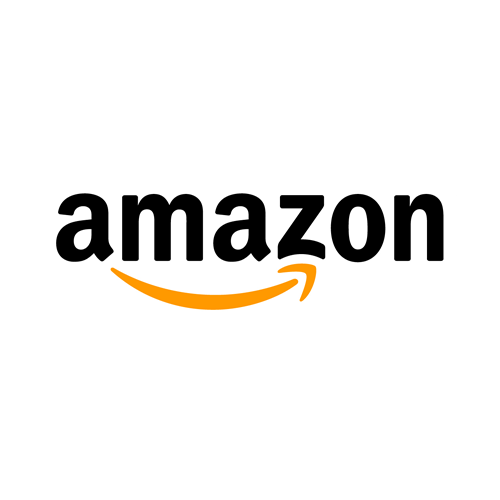
I am currently working as an Applied Scientist within the Amazon Advertising Platform, a business that creates and supports display advertising on Amazon owned and operated sites as well as on other publishers in the Amazon Ad Platform network. We utilize logistic regression and in some cases random forests to predict the performance of Ads such as probability users will click on an Ad or purchase the product being advertised. This is often referred to as optimization. This changes the ranking of Ads and helps to decide what Ads we place in front of users. Initially I started within the Advertising Platform as a Machine Learning Engineer with part emphasis on production code development and part on researching optimization models. That slowly became a 100% software development role and as I completed my PhD, I changed roles and teams internally to become an Applied Scientist which continues to be a mix of engineering and data science.
Previous Research
Causal Learning as Planning
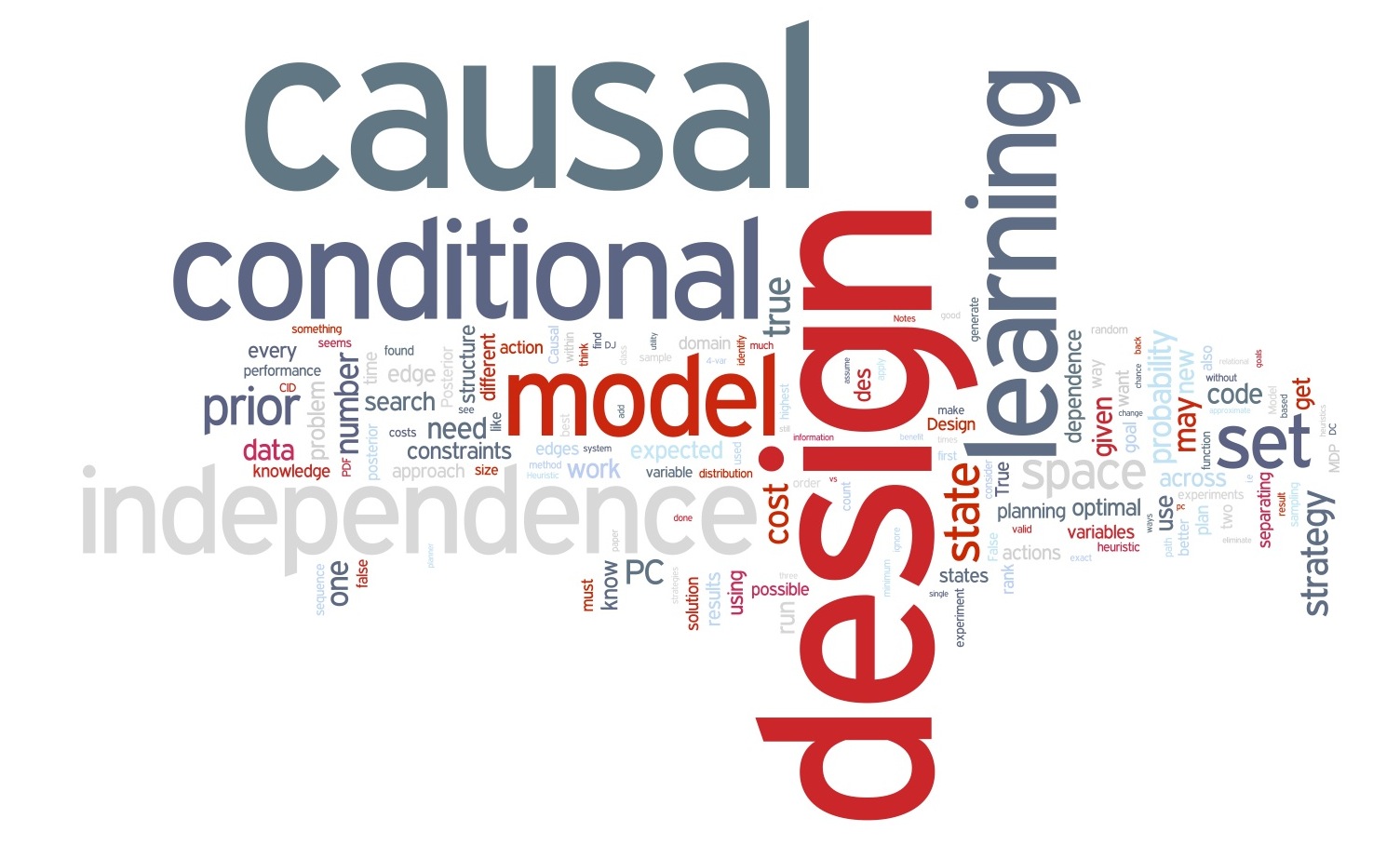
I investigated a generalized approach to causal learning called causal planning that reasons over causal designs as actions used to learn a causal model. I have been able to show that the incorporation of informative priors over the causal model space combined with assessing the benefits and utilities of causal designs, leads to performance improvements over standard constraint-based learning algorithms such as PC. My early work with causal learning was in the development of an extension of PC that works in relational domains called relational PC (RPC).
Causal Knowledge Discovery
I helped to create a system that enables causal knowledge discovery through identification of quasi-experimental designs (QEDs) from static, observational data. QEDs are traditionally found through manual, time-consuming means. Our automated system can find large numbers of possible QEDs and then reduce that number through analysis of dependencies in the data, generating a list of highly likely candidates for good QEDs. This system can combine QEDs with other kinds of tests on the data such as conditional independence tests and then automatically apply these designs and build a causal model over the data set through an iterative process.
Peer Production/Collaborative Systems
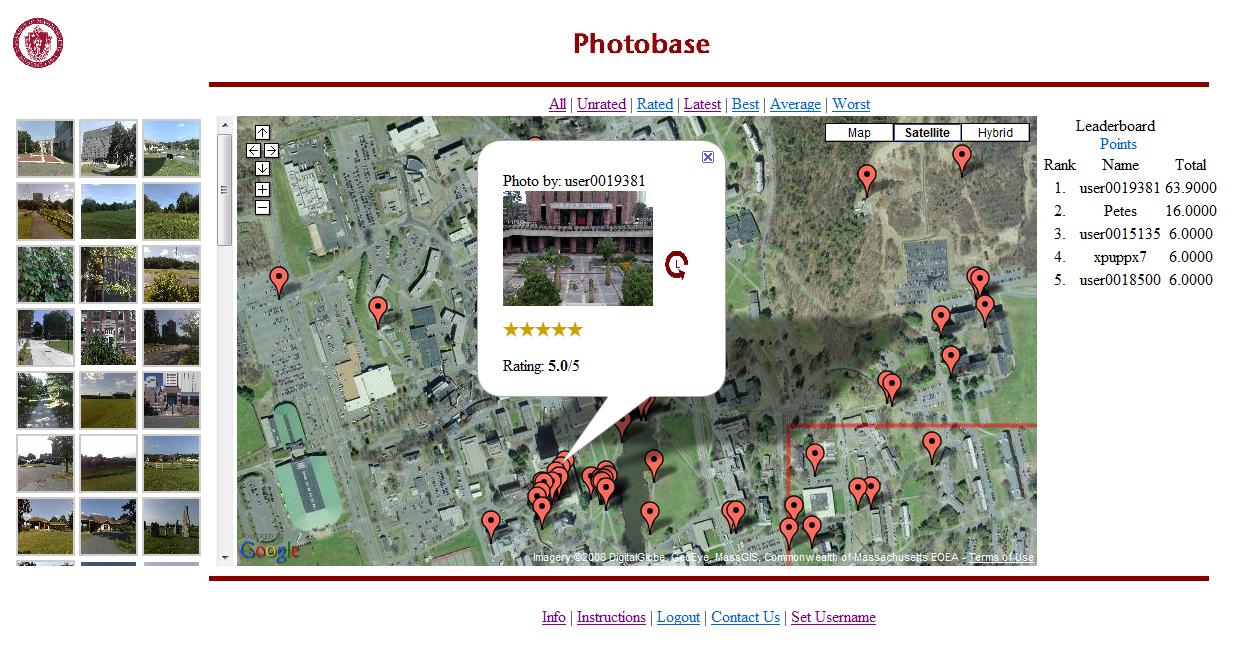
I developed a small research platform to investigate peer production and collaborative sensing systems called Photobase that ran on a Nokia N95. These are systems where people come together to generate or gather content that is then used and shared by the community. Wikipedia is an example. Photobase allowed us to experiment while participants use the system so we can evaluate what influences and affects their behavior and levels of participation. The Photobase design and experimental controls enabled strong causal inference. For example I found that when participants view the collaboration as a competition, they actually participate less frequently than those who do not. The study also suggested that for any participatory system that includes areas infrequently traveled will either need to rely on a very large and carefully selected participant list or the use of coordination to guarantee coverage.
Relational Learning
My initial research at UMass was in the area of relational machine learning algorithms and graphical models. I investigated the relational probability tree (RPT) and the relational dependency network (RDN) and how different characteristics of a data set can bias the learning algorithms. Biases like relational autocorrelation and degree dependency can influence relational learning algorithms and cause them to believe there is knowledge within the data that is not present but techniques like randomization tests and Gibbs sampling can correct for them. As part of a team within KDL, I helped to identify fraudulent behavior among brokers who are licensed by the Financial Industrial Regulatory Authority (FINRA). As part of a class project I applied relational learning techniques to clusters of individuals and movies to predict movie preferences for the Netflix Prize competition.
Verification and Validation of Adaptive Systems
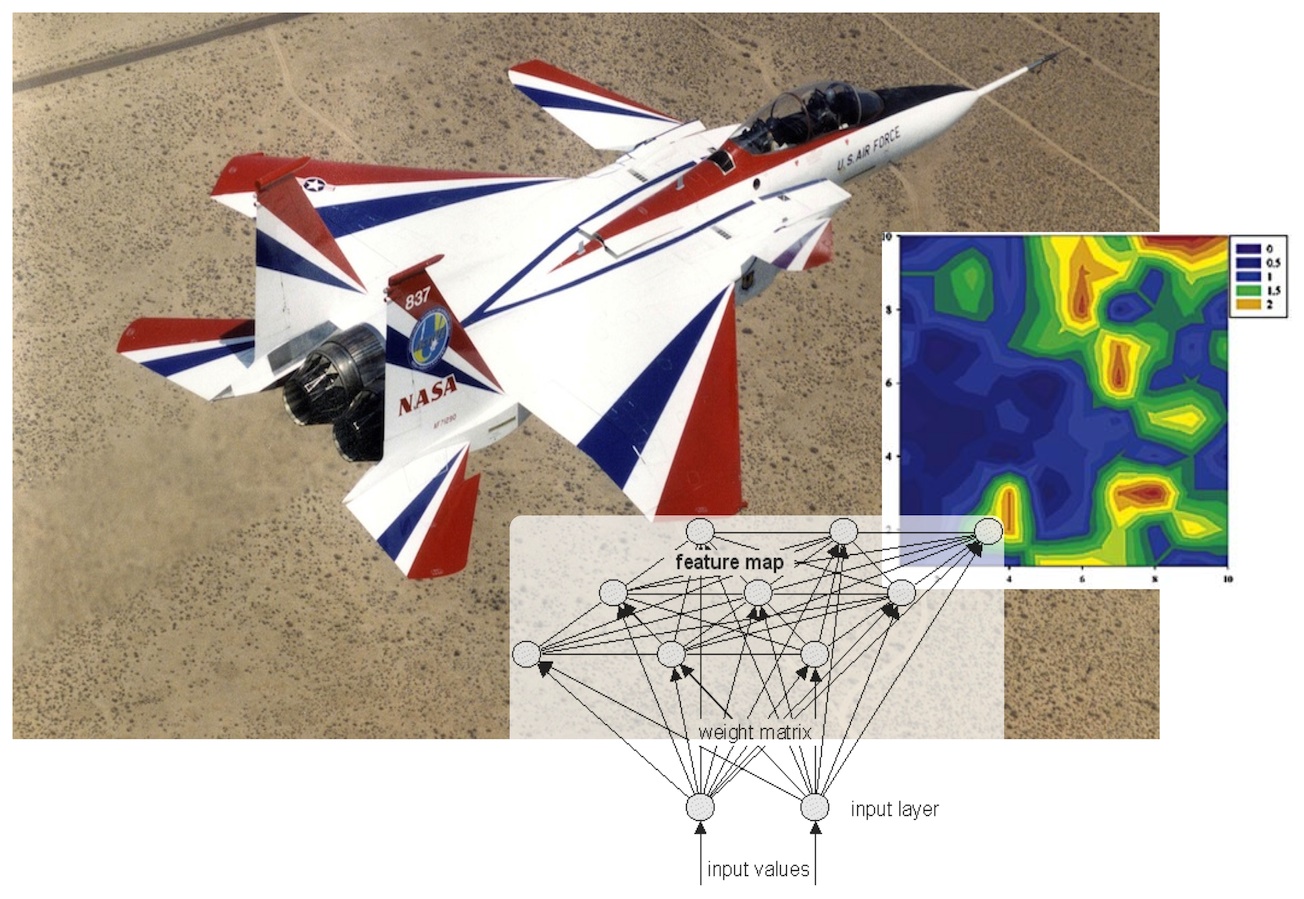
Prior to coming to UMass I worked in the area of software engineering, specifically verification and validation (V&V), on adaptive systems. I was the Principle Investigator in the study and development of novel techniques into neural network software verification and validation that resulted in guidance for software engineers working on neural network adaptive systems. I developed a neural network rule extraction algorithm to translate the inner knowledge of a self-organizing neural network called DCS into a formal set of association rules that can then be used for human understanding, software validation, testing, and hazard mitigation. I also helped to develop and implement a flight-qualified intelligent flight control system onboard an experimental F-15 aircraft as part of a research team on the Intelligent Flight Control Systems project funded by NASA Dryden Flight Research Center.
Skills
Machine Learning
Causality, Logistic Regression, Decision Trees, Random Forests, Bayesian Networks, Relational Learning, NNs (Self-organizing maps, MLPs)
Programming Languages
Java, Python (moderate), R (novice), SQL, Unix Shell Script, Scala (novice), C (rusty)
Technologies
Spark (novice), PostgreSQL, Hive (novice), git, AWS (DynamoDB, S3, Kinesis, Redshift, EC2, SQS, SNS, EMR), Python Libraries (NumPy, SciPy, Pandas, Scikit Learn)
Tools
Eclipse, LateX, Word, Excel, PowerPoint, OmniGraffle, OmniOutliner, Keynote, Visio
Software Development
Scrum/Agile/Kanban, Production Coding and Deployment, V&V
Other
Quasi-Experimental Designs, A/B testing, Peer Production Systems
Selected Publications
Dissertation and Theses
- Taylor, Brian J. Informed Search for Learning Causal Structure. Computer Science Department, University of Massachusetts, Amherst, MA, September 2015. Doctoral Dissertations May 2014 - current. 540.
- Taylor, Brian J. Photobase — A Research Platform to Investigate Peer Production and Collaborative Sensing Systems. Computer Science Department, University of Massachusetts, Amherst, MA, May 2008.
- Taylor, Brian J. Regressive Model Approach to the Generation of Test Trajectories. Department of Computer Science and Electrical Engineering, West Virginia University, Morgantown, WV, December 1999.
Books and Chapters
- Darrah, Marjorie, B. Taylor. Rule Extraction to Understand Changes in an Adaptive System, in Adaptive Control Approach for Software Quality Improvement, vol. 20 of Series on Software Engineering and Knowledge Engineering, W. E. Wong, and B. Cukic, Eds. World Scientific, pp. 115-144, 2011.
- Pullum, Laura L., B. Taylor, M. Darrah. Guidance for the Verification and Validation of Neural Networks. Wiley-IEEE Computer Society, 2007.
- Taylor, Brian J. Editor. Methods and Procedures for the Verification and Validation of Artificial Neural Networks. Springer, 2005.
Journal Articles
- Pullum, Laura L., M. Darrah, B. Taylor. Independent Verification and Validation of Neural Networks — Developing Practitioner Assistance. Software Tech Newsletter 7(2), pp. 11-14, 2004.
- Cukic, Bojan, B. J. Taylor, H. Singh, Automated Generation of Test Trajectories for Embedded Flight Control Systems, International Journal of Software Engineering and Knowledge Engineering, 12(2), pp. 175-200, 2002.
Conference Papers
- Oktay, Huseyin, B. Taylor, D. Jensen. Causal Discovery in Social Media Using Quasi-Experimental Designs. In Proceedings of the ACM/SIGKDD Workshop on Social Media Analytics, 2010.
- Maier, Marc, B. Taylor, H. Oktay, D. Jensen. Learning Causal Models of Relational Domains. In Proceedings of the Twenty-Fourth AAAI Conference on Artificial Intelligence, 2010.
- Jensen, David, A. Fast, B. Taylor, M. Maier. Automatic Identification of Quasi-Experimental Designs for Discovering Causal Knowledge. Proceedings of the 14th ACM SIGKDD International Conference on Knowledge Discovery and Data Mining, 2008.
- Jensen, David, A. Fast, B. Taylor, M. Maier, M. Rattigan. Automatic Identification of Quasi-Experimental Designs for Scientific Discovery. In Proceedings of AAAI Fall Symposium on Automated Scientific Discovery, 2008.
- Fast, Andrew, L. Friedland, M. Maier, B. Taylor, D. Jensen, H. Goldberg, J. Komoroske. Relational Data Pre-Processing Techniques for Improved Securities Fraud Detection. In Proceedings of the 13th International Conference on Knowledge Discovery and Data Mining, pp. 941-949, 2007.
- Taylor, Brian J., M. Darrah. Rule Extraction as a Formal Method for the Verification and Validation of Neural Networks. In Proceedings of the 2005 IEEE International Joint Conference on Neural Networks (IJCNN 05). Montreal, Quebec, Canada, 2005.
- Darrah, Marjorie, B. Taylor, M. Webb. A Geometric Rule Extraction Approach used for Verification and Validation of a Safety Critical Application. In Proceedings of the 18th Annual Florida Artificial Intelligence Research Society Conference, Clear Water Beach, FL, 2005.
- Darrah, Marjorie, B. Taylor, S. Skias. Rule Extraction From Dynamic Cell Structure Neural Network Used in a Safety Critical Application. In Proceedings of the 17th Annual Florida Artificial Intelligence Research Society Conference, Miami FL, 2004.